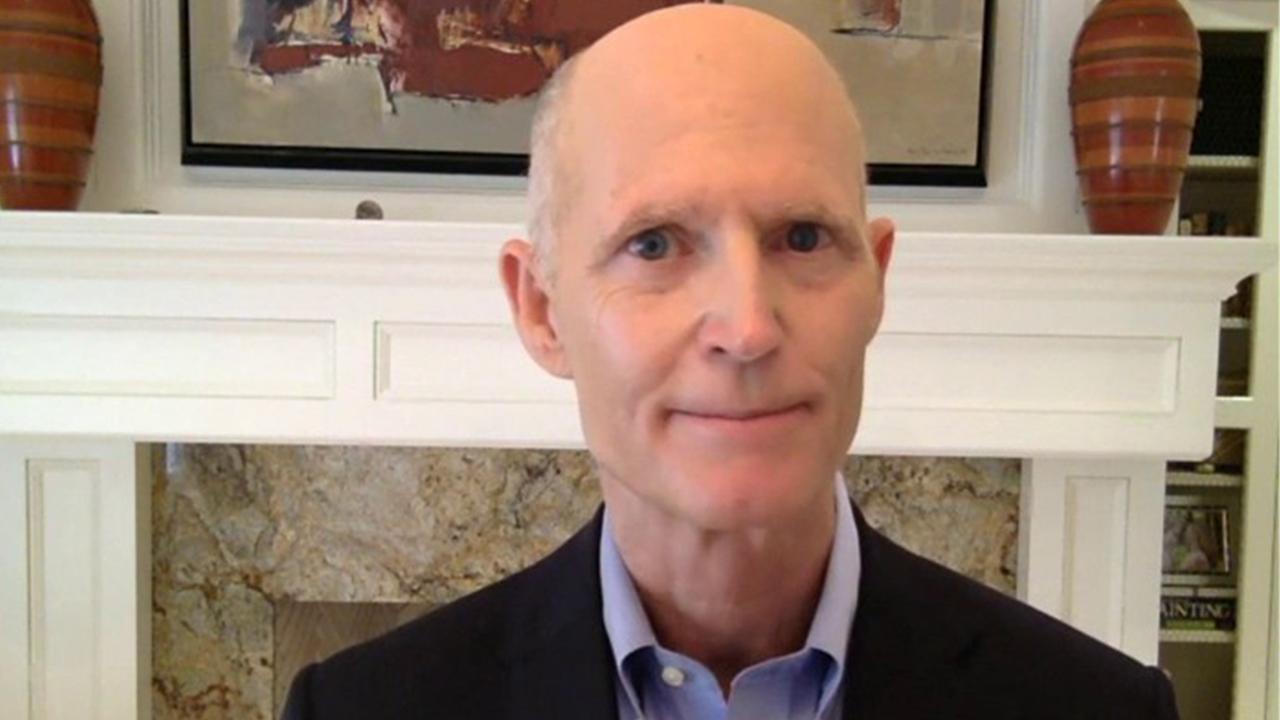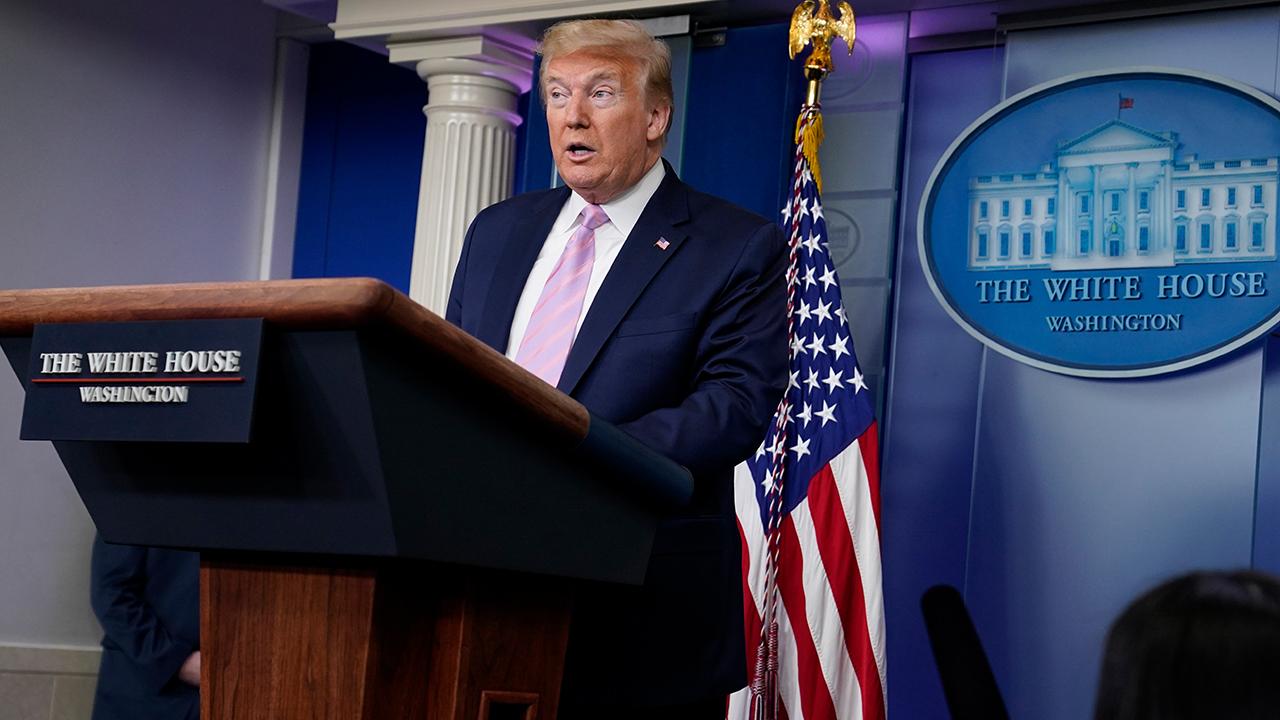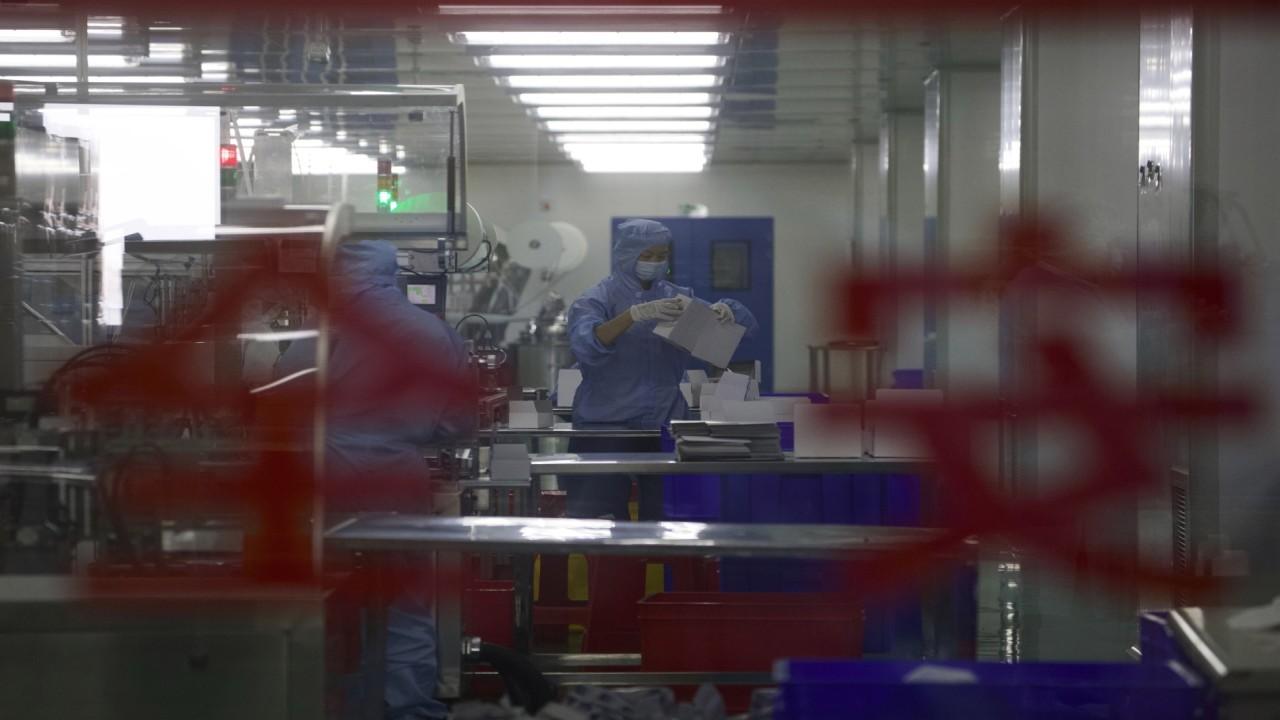After coronavirus, for US to survive, we must tackle looming debt crisis: Sen. Rick Scott
Congress has significantly exacerbated and sped up our looming fiscal crisis
Get all the latest news on coronavirus and more delivered daily to your inbox. Sign up here.
In Washington, fiscal conservatism goes out the window during a crisis. As we work to solve the coronavirus crisis, make no mistake – Congress has significantly exacerbated and sped up our looming fiscal crisis. Even during the economic boom we were experiencing, our federal government was set to spend approximately $4.6 trillion dollars while collecting only $3.6 trillion in taxes and fees.
Now, with the downturn in the economy and the new stimulus bill, the federal government this year will spend more than $7 trillion and collect much less than anticipated.
WARREN BUFFETT: 'AMERICAN MAGIC' WILL OVERCOME CORONAVIRUS
If our financial system comes crashing down because of excess government spending and borrowing, history suggests we will either have runaway inflation, where the price of goods skyrockets, or deflation, where goods get cheaper by the day. Both of these scenarios hurt the poorest families and those living on a fixed income.
We don't know how consumers and companies will react after this crisis. Will the economic expansion reignite immediately? Will companies and families pay down their debts, defer purchases, sell seldom-used assets and save for a rainy day? Will families have fewer children and eat out less often? These decisions will decide what our economy will look like for a generation.
CORONAVIRUS PANDEMIC HIT HALF OF AMERICANS' FINANCES, POLL FINDS
Inflation could occur if investors decide that the rising interest on the federal debt, which now exceeds $24 trillion, is unsustainable. If investors stop buying government bonds, the federal government will have to increase interest rates to entice investors to buy the bonds necessary to fund monthly deficit spending. Over the last fifty years, the average interest rate for a ten-year Treasury note was around six percent. Today, it is less than one percent.
Politicians in Washington are afraid to tell you the truth, so here it is: if we want our country to survive and thrive and continue to be a beacon for freedom, prosperity and hope around the world, we’ll need to make tough choices after this crisis is over.
If interest rates rise, the increased interest expense will spike annual deficit spending and cause the Treasury to try to sell more bonds, which, in turn, will cause interest rates to go up even faster. This will cause increased borrowing costs for companies and, more importantly, higher costs for American families for mortgages, credit cards, car loans, and student loans. Accordingly, companies will raise the price for their goods and services to pay for their increased borrowing costs and families will have less discretionary income.
Who does inflation impact? Not the rich. Their assets will simply go up in value with inflation. The two groups that will be impacted are those who live on a fixed income and hourly workers.
TRUMP PREDICTS 'INCREDIBLY STRONG' FOURTH QUARTER
For people on fixed incomes, their incomes will stay the same while the prices for the items they buy will go up month after month. For hourly workers, wages will not go up fast enough to cover the ever-increasing costs of goods and services. This happened in the United States in the 1970s.
Deflation could occur if companies and individuals conclude they need to save more money and reduce their debt to better prepare for the next crisis. If companies do this, they will not be able to grow and create new job opportunities.
That is exactly what happened to my mother’s generation that grew up during the Great Depression. She had to work multiple odd jobs to feed five children. She saved all she could because she was concerned with what could happen to her income and she wanted to be prepared.
GET FOX BUSINESS ON THE GO BY CLICKING HERE
Congress will soon be faced with tough choices about what programs are "must haves" and what programs are "nice to haves." If it wasn’t clear before, it must be now: we can no longer afford many government programs that are simply nice to have.
National defense is the primary reason our federal government exists. We have to be smart about where we utilize defense resources around the world, but we must maintain a strong, strategic and well-funded national defense posture.
We also have important entitlement and safety net programs that American families rely on. Medicaid, Social Security and Medicare are effective federal programs, but the latter two are set to run out of money, and fast.
Next year, Social Security will pay benefits that exceed its income for the first time in almost 40 years. These programs must be preserved, reformed and protected.
It’s time to take action. Politicians in Washington no longer have time to hide behind the cowardice of political expediency. As I stated after Congress passed the CARES Act, once this crisis is over, we must make a plan to cut federal spending by at least the amount we spend during the crisis. There is no other option.
Politicians in Washington are afraid to tell you the truth, so here it is: if we want our country to survive and thrive and continue to be a beacon for freedom, prosperity and hope around the world, we’ll need to make tough choices after this crisis is over. We’ll need to do more with less.
We’ll need to reassert the fundamental principle of conservatism that the private sector and individuals – not the government – should be the driving forces behind our economic stability and success.
Republican Rick Scott represents Florida in the United States Senate. He is the former governor of Florida.























